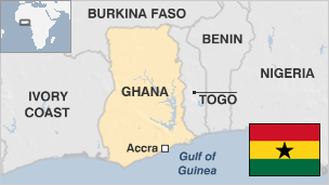
Facts and stats about Ghana
The Republic of Ghana is a sovereign state which is a state/unitary form of presidential constitutional republic within the Gulf of Guinea and Atlantic Ocean in West Africa. Ghana became the first African nation to declare freedom from European colonization in 1957. The country has achieved fast economic growth and human development in recent years. Ghana is a producer of natural gas and petroleum. It is also the biggest producer of diamond and gold as well as the second biggest grower of cocoa globally.
You can find Lake Volta in Ghana. It is the largest man-made lagoon in the whole world. It is acknowledged as a regional power and a founding member of the Non-Aligned Movement. The nation also belongs to the Economic Community of Western States. It is the first country in sub-Saharan Africa where Europeans traded gold and later on, human slaves. It is wealthy in mineral resources. However, Ghana was affected by corruption and mismanagement after it achieved independence in 1957.
The GDP growth rate of Ghana was estimated at 7.1% due to its oil revenues, services sector and strong export performance of cocoa and gold. Ghana’s medium-term growth outlook remains positive because of massive investments in the chemical industries, public infrastructure and commercial agriculture sectors. However, macro-economic management and continuing political stability have not significantly transformed the structure of Ghana’s economy. Mining and construction have sustained the industrial sector while the manufacturing industry has been declining as a share of GDP during the last two decades.
- Agriculture 137
- Background 7
- Conflict 1
- Cost of living 53
- Crime 41
- Culture 23
- Disasters 2
- Economy 3006
- Education 628
- Energy 665
- Environment 240
- Geography 84
- Government 211
- Health 328
- Import 2
25.2 million
Population. Ranked 48th in 2013.
$1,604.91
GDP per capita. Ranked 130th in 2012.

227,540 sq km
Sq. km. Ranked 79th in 2008.